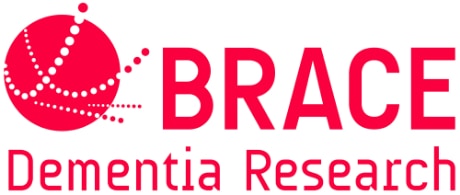Frequently asked questions about Fastball
Fastball is a test that has been developed to detect memory changes. Research so far suggests it may be possible to detect Alzheimer's years before noticeable symptoms. Fastball may also be able to detect memory changes in people with Mild Cognitive Impairment, (MCI), a condition that can lead to dementia.
What is Fastball?
Fastball is an EEG test that measures a person's brainwaves. It was developed by Dr George Stothart at the Univeristy of Bath.
The test involves the participant having a cap placed on their head and watching images on a tablet.
It is a passive, quick and easy to use. It is non-invasive; this means that besides wearing the cap, there are no medical tools such as needles for a test.
What types of dementia can Fastball diagnose?
- The Fastball test is still in the research stages, and while the research so far show it can accurately detect memory changes, it is not currently being used to diagnose people with dementia.
- Dr Stothart's research suggests that it may be able to accurately detect early stage Alzheimer’s and also Mild Cognitive Impairment (MCI) a condition that can lead to Alzheimer’s and other types of dementia.
- The test is currently being developed to see if it is possible to detect other types of dementia by a BRACE-funded PhD student.
How can I be tested?
The test is still in the research stage, and it is only possible to be tested if you are volunteering in a Fastball research project.
Currently, only people without a diagnosis or memory problems can volunteer for Fastball. All volunteer positions for people with dementia are filled.
To volunteer as a healthy participant, please sign up to Join Dementia Research.
By joining you will be invited to take part in dementia research projects which may include Fastball. You can say no or withdraw from being a research volunteer at anytime.
Why is an early diagnosis important?
With the development of the breakthrough Alzheimer’s drugs, donanemab and lecanemab, an early diagnosis is more important than ever before. The drugs are clinically proven to be the most effective in the early stages of Alzheimer’s.
For the person living with dementia and their loved ones, delays in diagnosis can cause stress and worry. It delays making informed decisions about possible treatments, care, and plans for the future such as making a home 'dementia friendly.'
Earlier diagnosis is important for researchers
Research shows that dementia starts years before a diagnosis takes place. In the case of Alzheimer's disease it is believed that it begins 10-20 years before noticeable symptoms. However, up until now there have not been any tests that have been able to reliably diagnose dementia in the early stages.
This has limited researchers from developing treatments to slow down or even stop dementia.
Last updated 02.9.25
